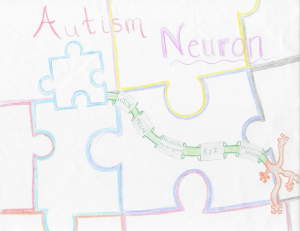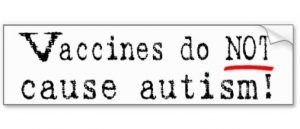Debunking Myths about Autism
Autistic Spectrum Disorder (ASD)
Autistic Spectrum Disorder affects thousands of families all over the world. This disease does not have a cure or a reversal treatment but provides medications to help suppress the symptoms. Symptoms can range from impaired social interaction to repetitive activities and behaviors. The spectrum ranges and the severity of these symptoms can as well.
What causes ASD is an open-ended question. The cause changes from case to case from one simple malfunction to multiple impaired functions. A few possibilities outlined in “Advances in understanding the pathophysiology of autism spectrum disorders,” are: neural connectivity impairment, impaired neural migration, dendrite morphology, excitation-inhibition imbalance, impaired immunity, epigenetics, genes and finally, the broken mirror theory.
Autistic Individuals Can’t Learn
While most people can learn using 2-3 various styles most autistic individuals rely on one. These various learning styles are chosen from: auditory learner, visual learner, hands-on leaner, etc. Input is received from all senses in an environment that a person is in. In most schools, the requirement of reading a PowerPoint while simultaneously listening to a teacher is required. An autistic individual may only learn from hands-on experience, permitting them from learning properly in an educational system. Learning styles differ from person-to-person just as each autistic individual needs to be provided with their correct learning style to learn. They have the ability to learn, but might not be provided with the correct tools to learn.
Autistic Children Are Anti-Social
Individuals with autism can be very social and enjoy having relationships with other individuals. However, they may use other forms of communication and may not enjoy being in crowded, loud environments. This does not mean that the individual is anti-social, but rather that they enjoy a more comforting environment. Children with autism can be found to make good connections with individuals who are understanding and patient with the form of communication. Autistic individuals may seem anxious, misread social cues, and need support to communicate, but should not be misunderstood as anti-social personality disorder. In “Emotional Understanding, Cooperation, and Social Behavior in High-Functioning Children with Autism,” the article helps debunk the idea that children with autism are anti-social. They found evidence that children with autism may lack in appropriate behavior and reading of emotions but still have a social behavior just like any other human. With such a broad spectrum, what an autistic patient requires in a social environment changes and their ability to understand as well.
Vaccines Cause Autism

The first vaccination was given in 1796 in England. Centuries of vaccinations were provided before a young red-headed girl brought her case to court about Autism. In 2007, Hannah Poling received a settlement for acquiring autistic-like symptoms after being vaccinated with the MMR vaccine. MMR vaccine is found to fight against measles, mumps and rubella. This vaccine has been vary controversial in the autism and vaccine theory. A study conducted by B. Taylor, E. Miller, C. Farrington, etc al. in took 498 autistic patients and debunked the connected between MMR vaccine and autism. “Our analyses do not support a causal association between MMR vaccine and autism.” Repeated research has been testing the safety of vaccines. No scientific data concludes vaccines cause autism.
(For more information on the case: https://www.nejm.org/doi/full/10.1056/NEJMp0802904)